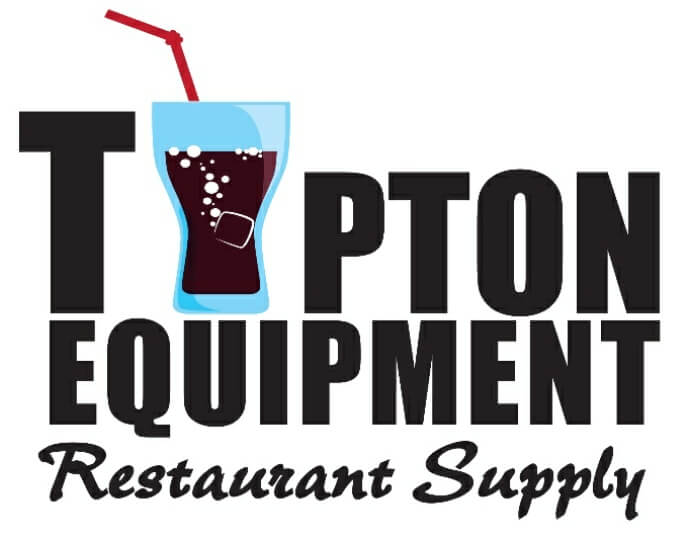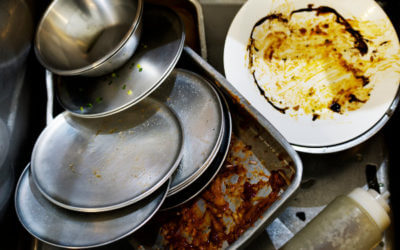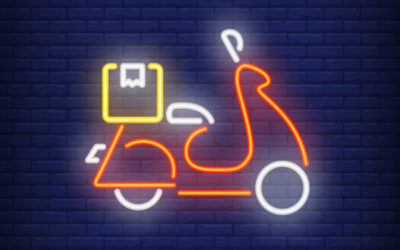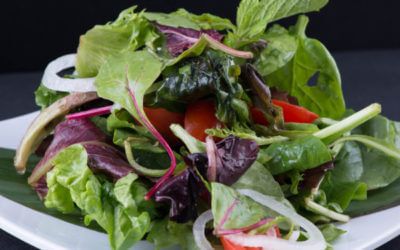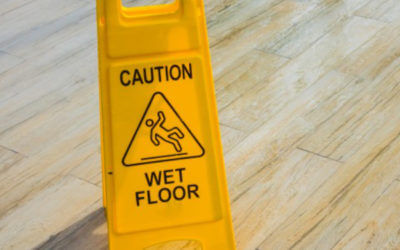Restaurant Equipment: How to Handle Gluten Allergies
August 14, 2018In the last five years, you’ve probably seen a dramatic increase in the number of restaurant customers you have that are avoiding gluten.
Some of them simply don’t like it, and others have a life-threatening reaction if they eat it. As a restaurant owner, you want to be able to accommodate your guests.
However, knowing how to properly choose and use restaurant equipment to handle gluten allergies can be a challenge. Here are some tips that can help.
Understand the Types of Gluten Concerns
When someone says, “Do you have anything gluten-free?” they can be asking for a wide variety of reasons.
Perhaps they simply believe gluten is bad for them. Or, they may have actual medical reactions to gluten that may be severe.
Here is a list of the different concerns people may have with gluten:
- Allergies: these range from mild to life-threatening. When someone’s immune system reacts to gluten, they can become very ill. This is the case for those with celiac disease.
- Intolerances: sometimes a food simply causes digestive problems. These folks avoid gluten because they don’t like how they feel when they eat it.
- Specific Diet: Many people are on a gluten-free diet either to treat illness or to better their health.
It’s not particularly important why your guests request gluten-free. What is important is that your staff take it seriously. It could be a life-or-death issue, and too many restaurants make light of it.
As you create routines for special requests, it’s helpful to choose restaurant equipment and processes as if everyone who requests gluten-free has celiac disease. This way, you can keep your guests safe while respecting their privacy.
Creating Gluten-Free Dishes For Your Menu
The easiest way to handle frequent requests for gluten-free food is to have specific dishes already on your menu that don’t use those ingredients.
You will probably want to use specific restaurant equipment to prepare these dishes, as gluten can cross contaminate if the pan was used for another sauce or dish.
Remember, gluten-free means free, as in none. For those with celiac disease, a concentration of even 20 ppm in gluten can make them very ill for days.
As you create gluten-free dishes, scrutinize every ingredient. It’s amazing how many things have wheat or other gluten-containing compound added to them that you would never expect.
Have Gluten Free Adaptations For Normal Dishes
Some restaurants don’t have the space to keep a wide range of gluten-free dishes on the menu, especially if those items are not moving quickly each day.
Instead, you can have a way to adapt your usual dishes for a gluten-free request. Again, restaurant equipment is vital – you cannot afford to cross contaminate, and you will likely need a new small batch of whatever sauce, seasoning, or gravy is used.
Prepare your adaptations in advance and train your staff in how to create them. You can look over your menu to see which items are easiest to convert. Again, be careful of ingredients – even a spice mix may have gluten-containing ingredients added.
Have the Right Restaurant Equipment to Handle Allergies
Gluten allergies are not the only special request you’ll come across. That’s why it’s helpful to have specific, clean restaurant equipment set aside to handle allergy requests.
You can prevent cross-contamination without slowing down your kitchen if you have the equipment you need. Are you looking for a new set? We’d love to help. Contact us today for a quote!
Why Your Restaurant Needs an App
We know, you’re a restaurant owner, not a developer or programmer. Let other people worry about apps, you just want to run your restaurant! The truth is if you want to have a successful establishment, you have to take advantage of the technology that brings people in....
Choosing the Right Sink for Your Restaurant
There are many, many pieces of kitchen equipment that are vital but often taken for granted. The kitchen sink is one of them. This workhorse of the back of the house handles a lot of jobs. Sinks give you running water as well as a place to wash either food or dishes....
Restaurant Supplies You Need to Add Delivery
Delivery services are becoming more and more popular, and that’s generally good news for restaurants. The ability to order online and receive food in the comfort of home drives up sales and that’s good for revenue. And when these sales don’t require additional tables,...
Should You Add a Salad Bar to Your Restaurant?
New Year’s is a prime time for resolutions – and one of the most common is to eat healthier and lose weight. In fact, for 2018 45% of Americans said they wanted to lose weight or get in shape for the new year. The new year might have you eyeing new options for your...
How to Overcome the Seasonal Rollercoaster
Are you tired of having huge swings in your business throughout the year? Do you wish you could just have consistent, easy-to-predict income? If so, it’s time for you to get off of the seasonal rollercoaster. You might think there’s nothing you can do to overcome the...
The Restaurant Supplies and Strategies You Need in 2019
Are you ready for the new year? If you’re like many restaurant owners, you’re thinking about how to get through the holiday rush – both in your restaurant and in your own life. However, you can’t overlook planning for the future. It’s vital to make sure you have the...
2018 Cooking Equipment Holiday Gift Guide
Do you know someone who loves to cook? Or are you looking for a new, special piece of cooking equipment for yourself? Whether you’re interested in home cooking or you run a restaurant, you can benefit from these gift ideas. These great cooking items will thrill...
Accommodating the Keto Diet at Your Restaurant
The keto diet – a low-carb, high-fat combination – has been gaining a lot of traction in the last couple of years. As a restaurant, it’s vital that you are able to accommodate your diners’ needs. More than that, having popular options on the menu can help bring people...
Restaurant Supplies You Need to Prepare for a Power Outage
It happens to all of us. You’re going on, doing just fine, and suddenly…Dark. The power is out. And of course, you have no idea how long it will last. Fortunately, you have the restaurant supplies and process in place to weather the storm without losing your...
Considerations when Converting a Food Truck to a Restaurant
Your food truck has been successful, and you have a loyal following. So loyal, in fact, that you struggle to serve them all each day. Customers have started to ask you when you’re going to open a restaurant. It started as a teasing suggestion, but it’s become more...
How to Incorporate Curbside Service in Your Restaurant
Are you looking for creative ways to grow your business without also growing your expenses? Are you interested in strategies that can start making a difference today, not just a year from now? If so, then
Tips for Great Plating & Why it Matters
You may have heard that we “eat with our eyes” before we physically eat food. That’s why pictures are so important – on menus, in cookbooks, online, and more. It isn’t just a gimmick – the truth is that the way food looks and smells actually changes our experience of...
Be Proactive: Assess and Address Risks in Your Restaurant
As a restaurant owner or manager, you have a lot on your mind. You want employees to show up on time and ready to give great service. You want your food to be well-stocked, high quality, and ready to use. You need cooks to be attentive and customers to be clear in...
How to Reduce Noise From Restaurant Equipment and More
Having a popular restaurant is wonderful. You have a lot of guests, tables turn over quickly, and you and your employees make a lot of good money every night. However, sometimes popular spots can get low ratings for a simple reason – they’re too loud! It’s not an...
Foodservice Equipment Gone Wrong: When the POS Crashes
The point of sale (POS) system that you have helps you keep your restaurant running smoothly. It helps you track inventory, sales, and revenue. It allows your staff to create checks, swipe cards, and keep tables turning. The POS is a lifesaver – until it isn’t. Maybe...
